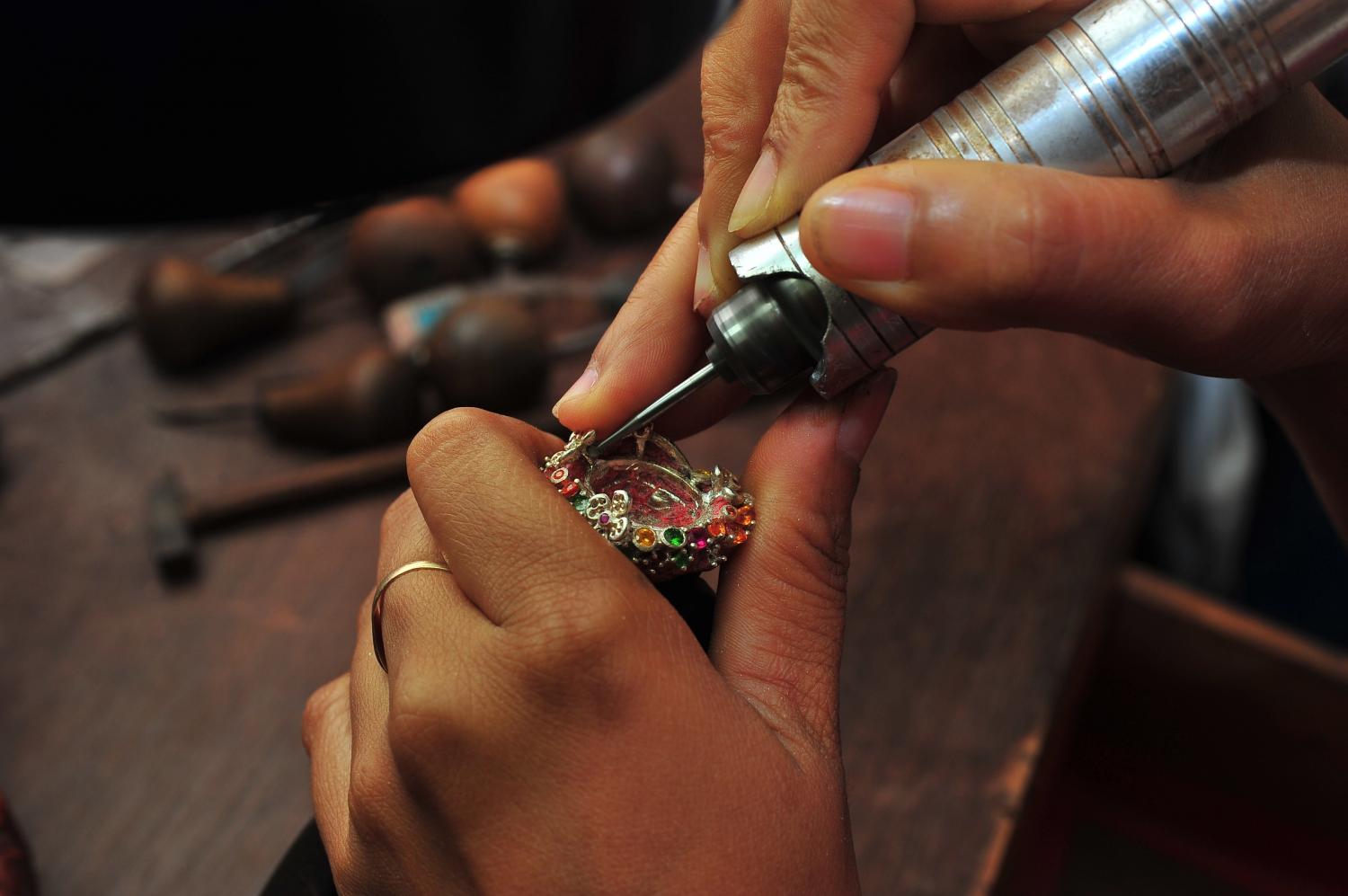
Thailand's gems and jewellery industry, like many others, has been battered by the Covid-19 pandemic.
This sector has long been an important contributor to the Thai economy, ranking third behind automobiles and electronics in total export value, with international shipments worth more than US$15 billion a year.
Last year, the industry employed 1.2 million people. In fact, Thailand ranked among the world's top 15 jewellery exporters last year, thanks to local knowledge and exquisite craftsmanship that cannot be replaced by modern technology.
However, the pandemic has severely affected demand for exports across several key markets, including major trade partners the US and UK. As of May this year, Thailand's gem and jewellery export value was down 62.95% from a year earlier to $3.5 billion.
International travel restrictions have also dampened trade by stemming the flow of customers such as trade buyers and tourists. Many gem factories and retailers have closed permanently as a result.
The industry also needs to consider the needs of younger buyers who are increasingly looking for responsible mining, conflict-free supply chains and environmental consciousness when shopping. This means demonstrating that their operations are ethical, traceable and environmentally friendly.
The industry is attempting to adapt to this evolving situation.
For instance, the Bangkok Gems & Jewelry Fair, which is organised annually by the Department of International Trade Promotion, will hold a Special Edition in September on a new online platform featuring a virtual trade fair and online business matching where buyers and exporters from all over the world can connect.
In addition, the Gem and Jewelry Institute of Thailand plans to organise the International Chanthaburi Gems and Jewelry Festival in Chanthaburi province at the end of this year to promote the industry while reinforcing the role of the eastern province as the world's gems manufacturing and trading hub. During the event, there will be business matching for Thai entrepreneurs with exporters from online shopping and e-commerce platforms.
Developing partnerships is also key. Thailand recently signed a mini free trade agreement with Kofu, Japan to form a partnership in the gem and jewellery industry to support business development in sales and marketing, technology transfer, business networking as well as trade fairs.
Located in Yamanashi Prefecture, Kofu is one of the world's leading jewellery manufacturing centres using various raw materials from Thailand, such as coloured gemstones, rubies, blue sapphires and jade.
During the first five months of this year, the export value of gems and jewellery from Thailand to Japan stood at 2.4 billion baht, up 10.4% year-on-year. This agreement will help further increase the export value of gems and jewellery from Thailand to Japan.
Highly skilled artisans, product quality and a strong manufacturing base have enabled Thailand to become a gems and jewellery hub. The desire for fine jewellery and gemstones dates back millennia and this will help the industry overcome the current difficulties so that it can continue to play an important role in the economy, providing employment for miners, artisans, designers and merchants.
Dr Thaweelap Rittapirom is a director and executive vice-president of Bangkok Bank. For more columns in this series, please visit www.bangkokbank.com
